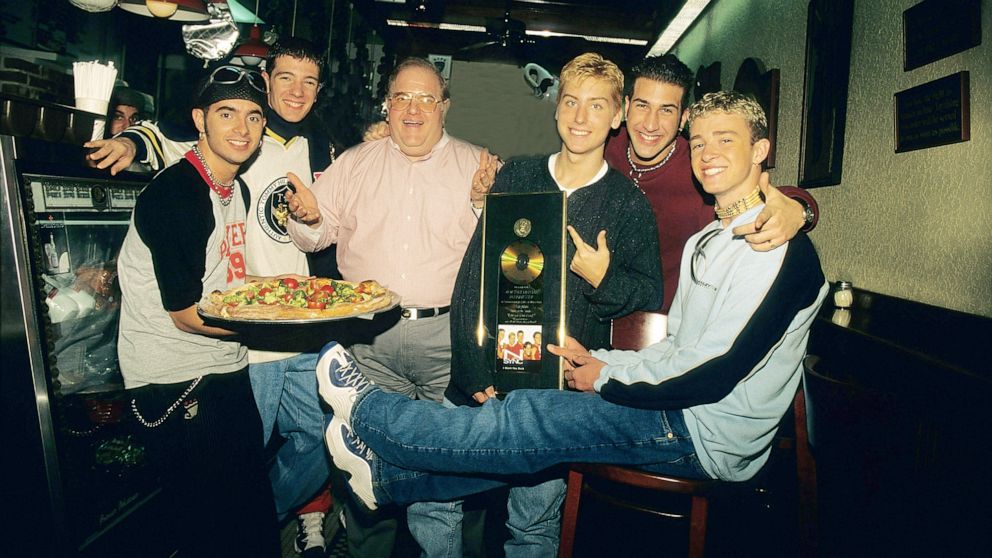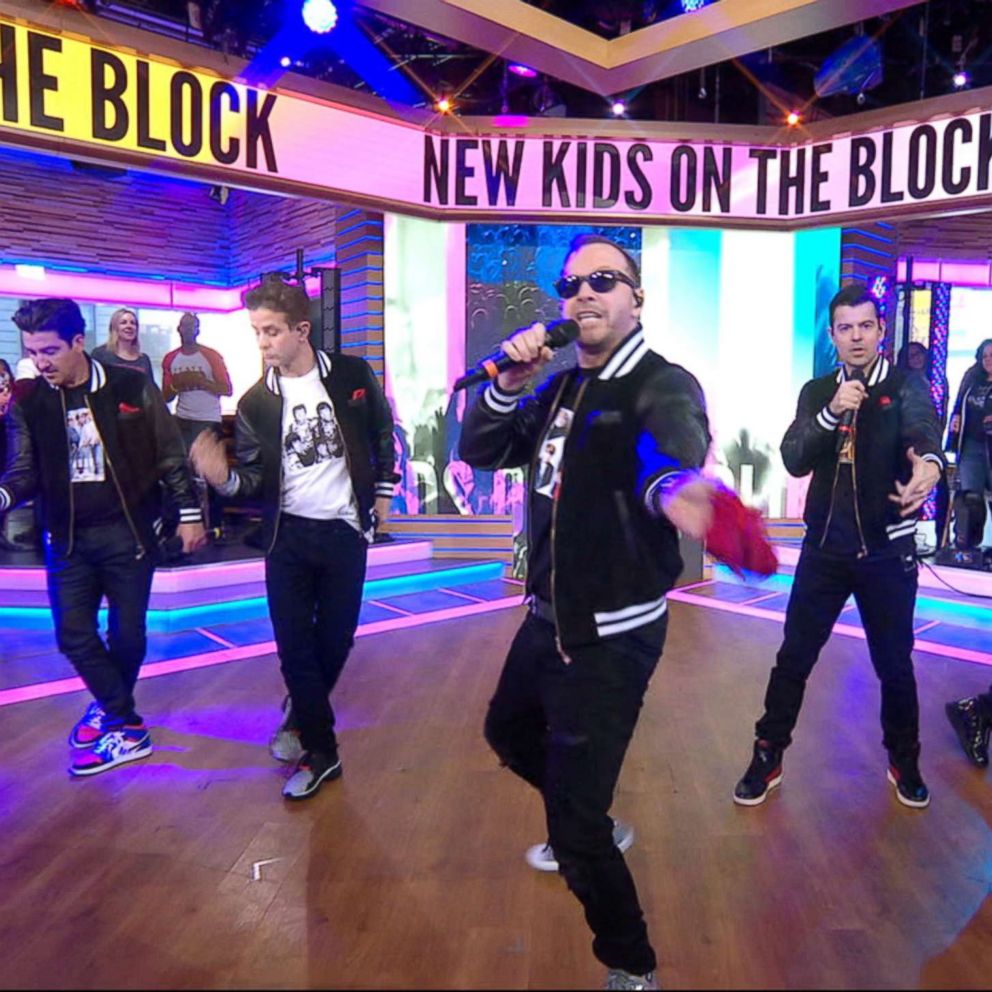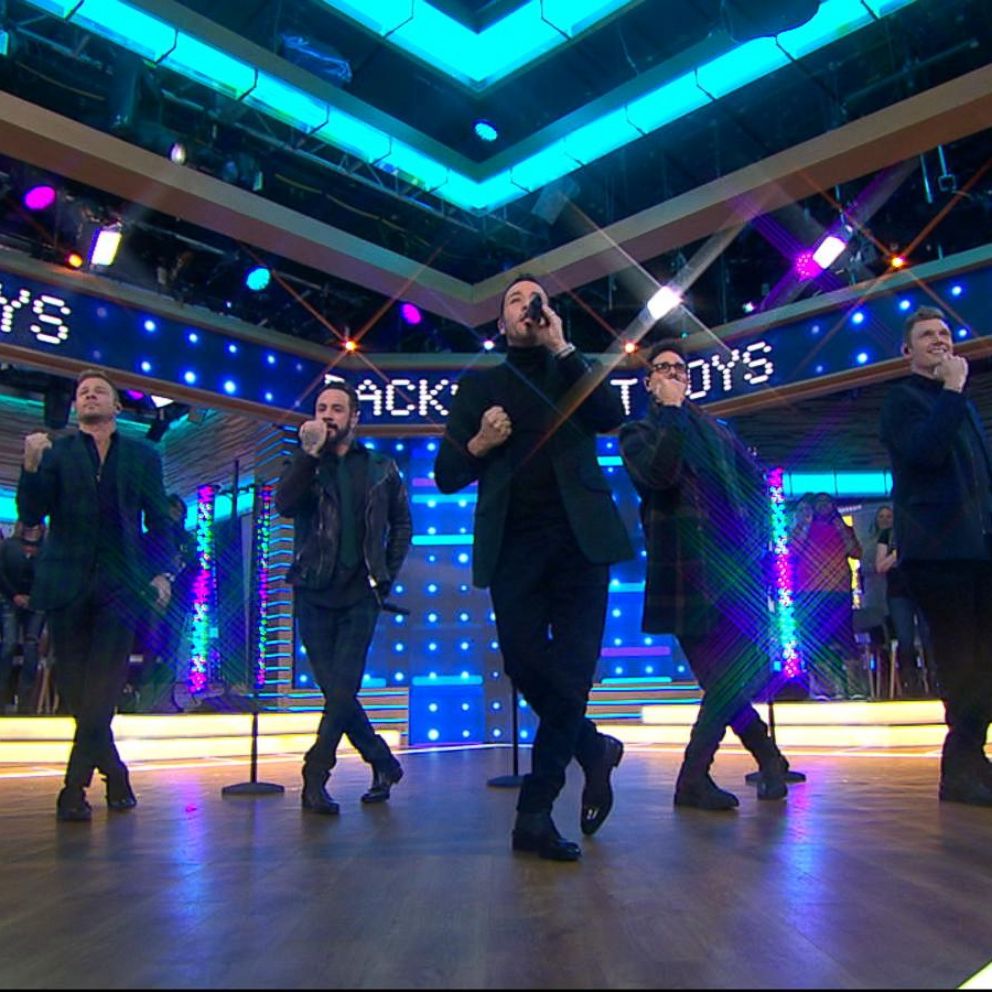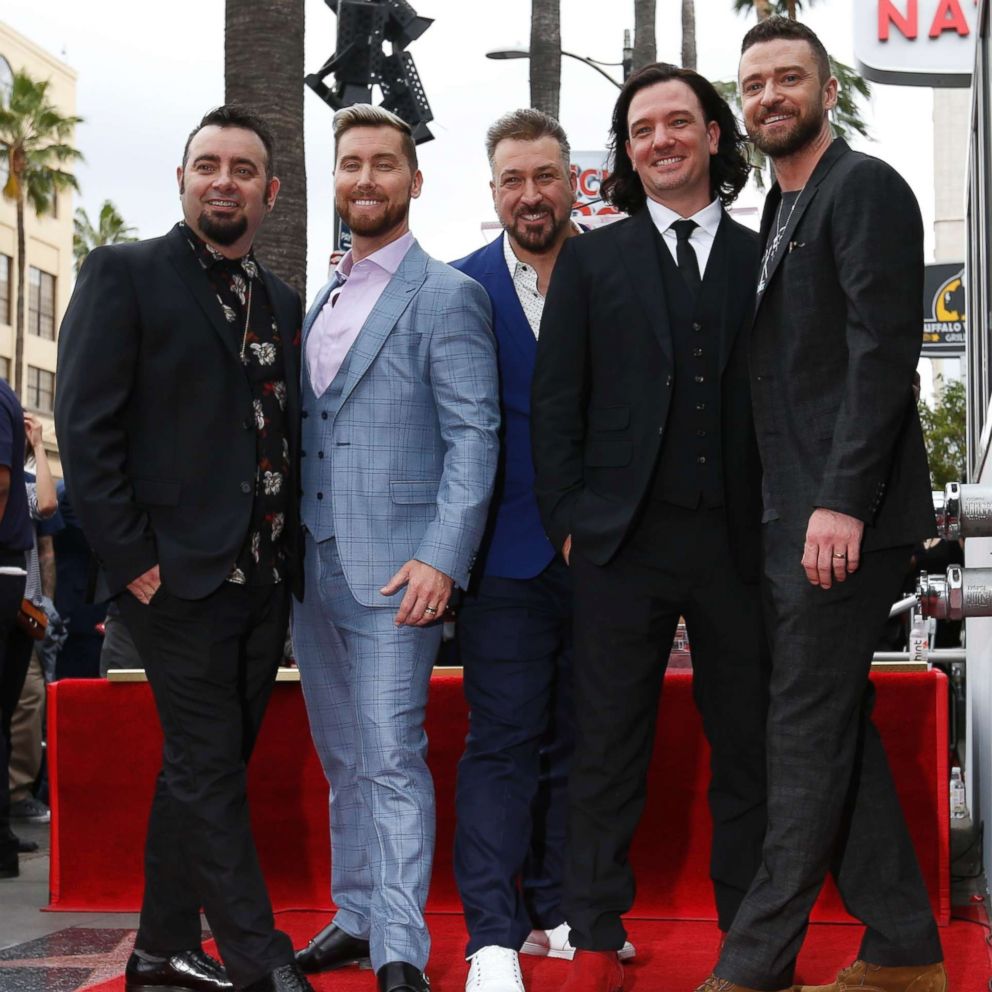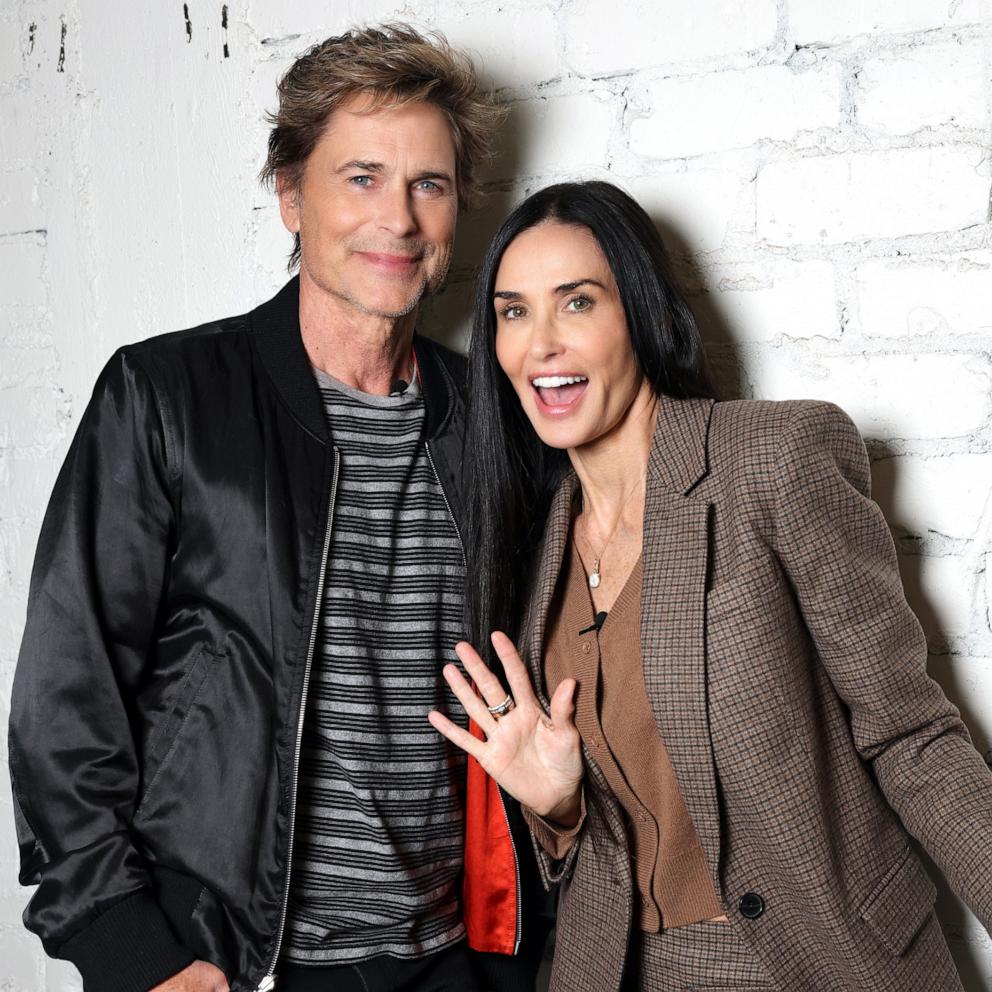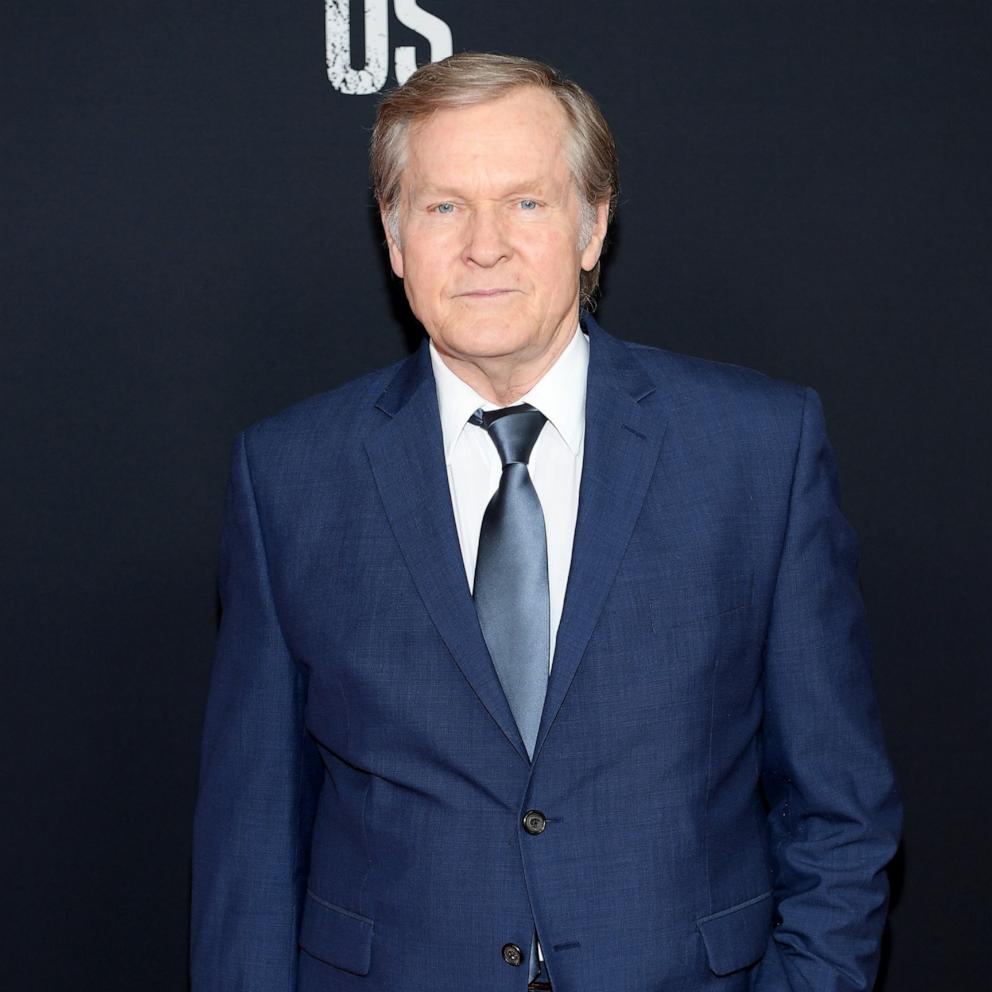NSYNC's Lance Bass gives boy bands a platform to discuss disgraced manager Lou Pearlman in new documentary
Boy band fan or not, if you grew up in the late 90s or early 2000s, you knew best-selling pop group NSYNC.
But it wasn't just talent, good looks and catchy songs that catapulted Justin Timberlake, JC Chasez, Joey Fatone, Chris Kirkpatrick and Lance Bass to stardom. Their manager, Lou Pearlman, helped fuel the group's success while conning them out of hard-earned money in the process.
Now, Bass is revealing the truth about Pearlman in the new documentary, "The Boy Band Con." The doc tells the story of Pearlman's life before, during and after he was sued in federal court by the groups he managed.
Pearlman was eventually convicted of fraud and money laundering, among other charges, and died in prison in 2016 while serving a 25-year sentence.
Bass, 39, who produces the film, collaborated with director Aaron Kunkel of Pilgrim Media to persuade his fellow band mates as well as Aaron Carter, members of the Backstreet Boys and O-Town to reveal their own experiences with Pearlman and how he took advantage of their trust.
Bass’ mom, Diane Bass, and Justin Timberlake’s mom, Lynn Bomar Harless, are also featured in the doc.
In addition to Pearlman's downfall, the film revisits a time where boy bands arguably ruled the world--selling millions of records and performing in massive arenas filled with screaming girls.
"Good Morning America" interviewed Bass and Kunkel about "The Boy Band Con." Here's the edited Q&A.
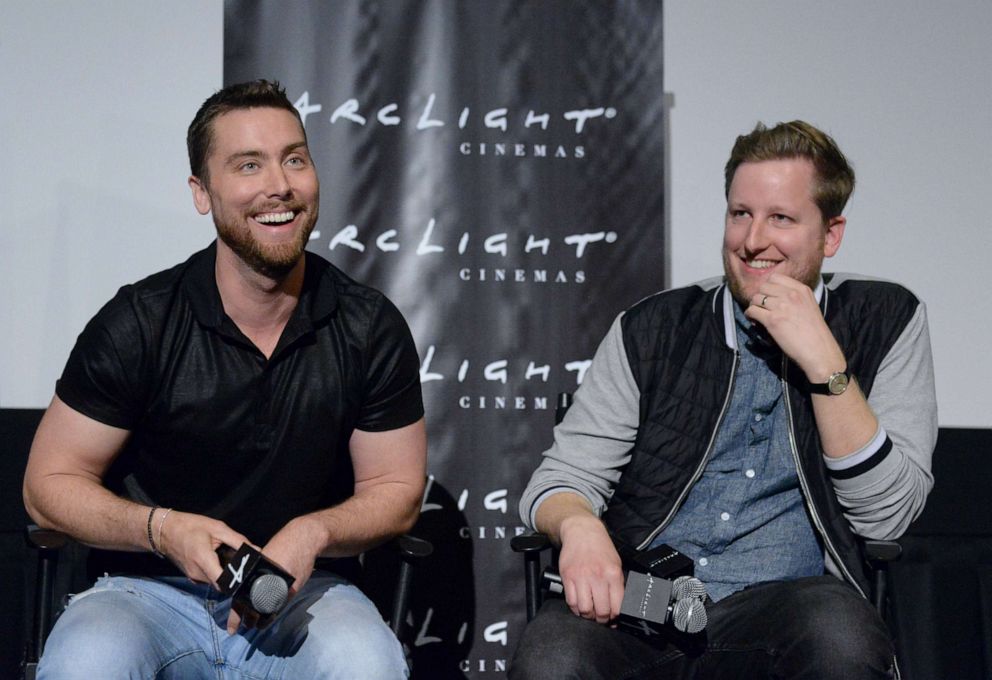
GMA: How important was it to tell this story from a journalistic perspective and not go off any hearsay that may have been out there when Pearlman was arrested?
Aaron Kunkel: It was very important. It was actually one of the first conversations we had ... we knew we wanted to be truthful to everything and do the best we could to corroborate anything we could and not just feed the machine of rumors that are out there swirling around.
Lance Bass: And as filmmakers you want to keep as much integrity as you can. I mean, this isn't our only and last doc. We wanted to make sure that people trust us, even in the future. So, this was very important to us just to tell the truth and give everyone a platform to speak their truths.
GMA: Describe to me the boy band craze in your own words.
Bass: It was just a beautiful time in history. Boy band fans are different from any other group of fans. They're way more energetic and it's incredible. We were so tired but that's what really fed us. The energy that we would get back from the fans, we would put right back out. We never really believed that we were that big and it helped us when we started out in Germany because the first two years of our career, it was this huge success over there and you'd have thousands of fans chasing your bus down the street but you're in Germany so it doesn't feel [real]. And then you'd call your friends back home and they're like, 'Yea, sure. This is happening.' It all felt like a dream. The whole entire time.
Kunkel: And it's still going. It takes us 15 minutes to leave any building because everyone wants to say hi to him.
Bass: You should've been there in '97. That was nuts.
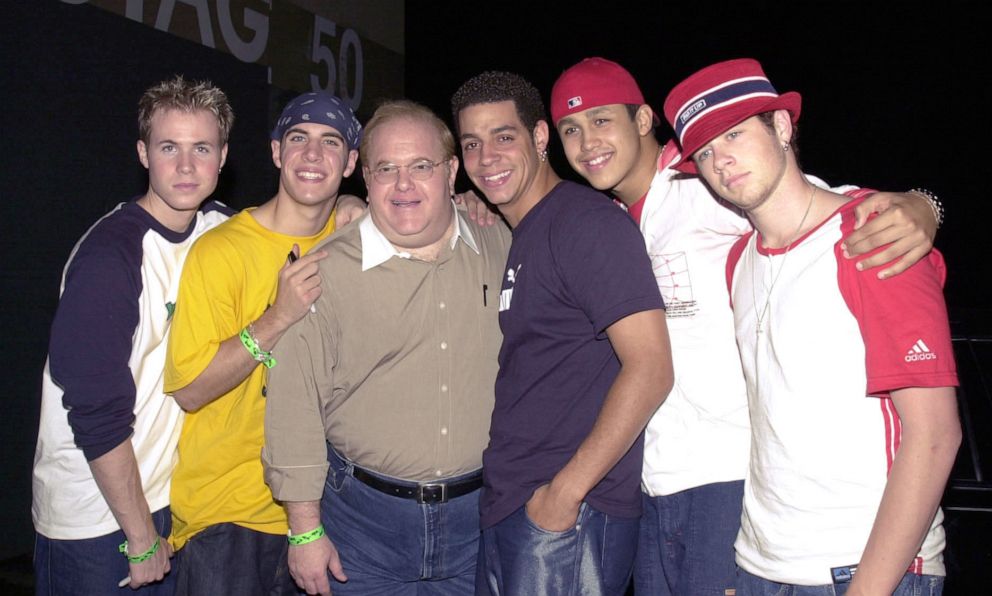
GMA: Oh, we had the Backstreet Boys and New Kids On The Block on "GMA" recently so yea, the fandom is still very much there.
Bass: You get to revert to being a teenager again -- it's the nostalgic feeling of feeling safe and I think people are just really wanting that right now.
GMA: You feature different boy band members in the documentary. Was that a good feeling to be able to revisit those moments even though you were talking about Lou and some painful times as well?
Bass: Well of course, I mean the good times are amazing to reflect on and doing this documentary I knew it was going to be emotional but in the end it was cathartic because I now have forgiveness in my heart for him. I didn't know I was holding in a lot of ill feelings towards the whole situation and so I feel really at peace with the whole story now.
GMA: Lance, what are your last memories of Lou?
Bass: The last memory I have of Lou is in court. We were on one side, he was on the other and we didn't even meet eyes. But that was the last time I saw him and I never saw him smile at all since that day.
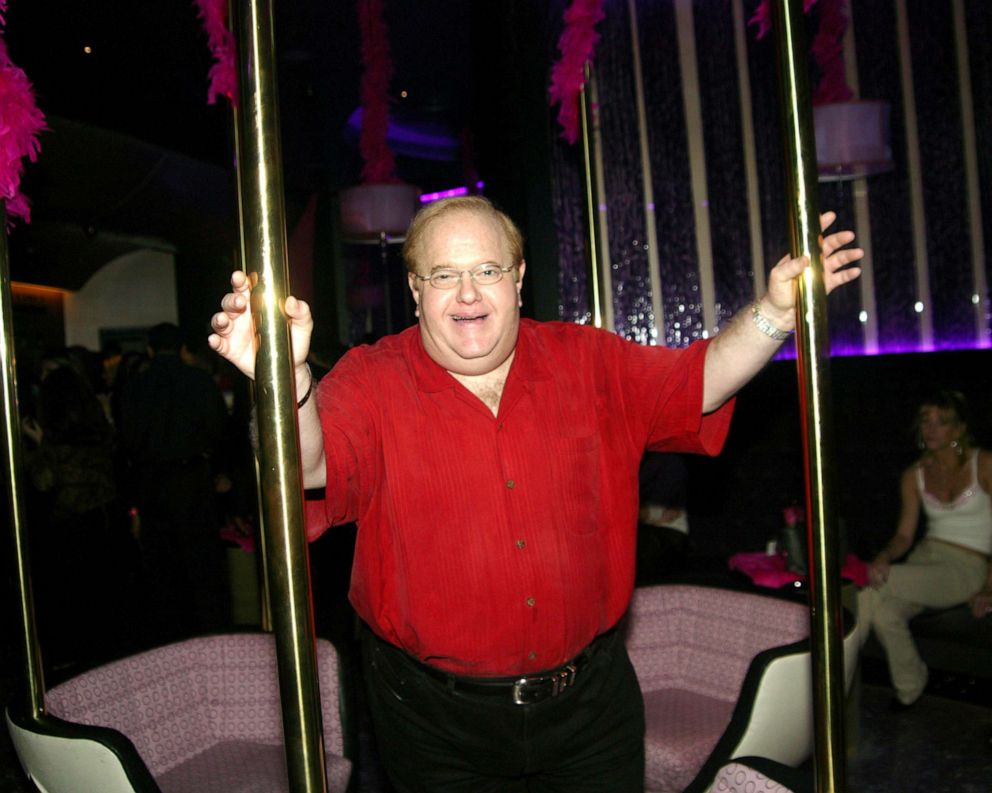
GMA: 'Leaving Neverland' and 'Surviving R. Kelly' -- these documentaries expose an array of situations where young people are putting their trust into people of higher power. Do you have any advice for young people trying to break into the industry?
Bass: With this doc, it's a cautionary tale for anyone in the industry because there's always going to be someone at the top trying to take advantage of someone below. That's why we had to repeat this story over and over again so people get reminded, 'I need to keep looking out for that.' The main advice is when young people get in the business, they need to really look at an entertainment lawyer to make sure that they are getting into a good contract. What we did was we just had any type of lawyer look at the contract. An entertainment lawyer would've known, 'No, this doesn't make sense' and 'five years from now, this is going to be horrible.'
Kunkel: Seeing everything that Lance went through and seeing how great Lance still turned out, I think it really speaks to the importance of having a really great support mechanism in your life. Whether it's your family or your friends, Lance had both. His mom was right there with him. He had four of his best friends who he was in the band with and I think if you have those people, ultimately, especially in the entertainment industry, a lot of us are going to get screwed over at some point so it's really important to have those people you know will have your backs when times are tough.
GMA: When you approached guys from other bands to be part of this documentary what were their reactions?
Bass: The initial reaction is 'no.' It's not that they don't trust me to tell the right story, but there's a lot of people behind this film. What is YouTube going to edit it like and all the other production companies? It's scary to trust that they're going to tell the right story and so far, the story of Lou Pearlman has been very salacious, very sex, drugs and rock and roll. But I knew I wanted to tell a different story. I wanted to tell a layered story of really getting to know who Lou Pearlman was and why. How did he become this person? Ultimately, people just had to trust me and the ones that we got in the film did.
GMA: Aaron Carter got pretty emotional during his interview. What can you share about that? Correct me if I'm wrong but it seemed as though he was defending Lou.
Bass: Aaron at the time we got him on film was in a bad place. He had just gotten arrested like the week before and it was very surprising. We didn't expect the emotions so you can see that torment still in his eyes. It was very intriguing that he defended him that much but you have to understand Aaron was with him since he was 6, 7 years old. Lou was the only real father figure he ever had so he's going to protect him no matter what. I was so glad we had him in the film because it's a voice of dissent that we didn't really have because Lou was guilty and he pleaded guilty and he want to jail for it so it's not like we're trying to prove that he did something wrong. He was a criminal. So it was hard to find people that would side with him and say that he did something good so it was nice that we had this voice.
Kunkel: It was great to have [Aaron Carter] because like Lance said, he exemplifies that family feeling that I think Lou was actually really good at cultivating at the start of all of this. Lou made them into this familial group with him as either a father figure or one of their brothers and I think Aaron just really latched onto that and is still holding that.
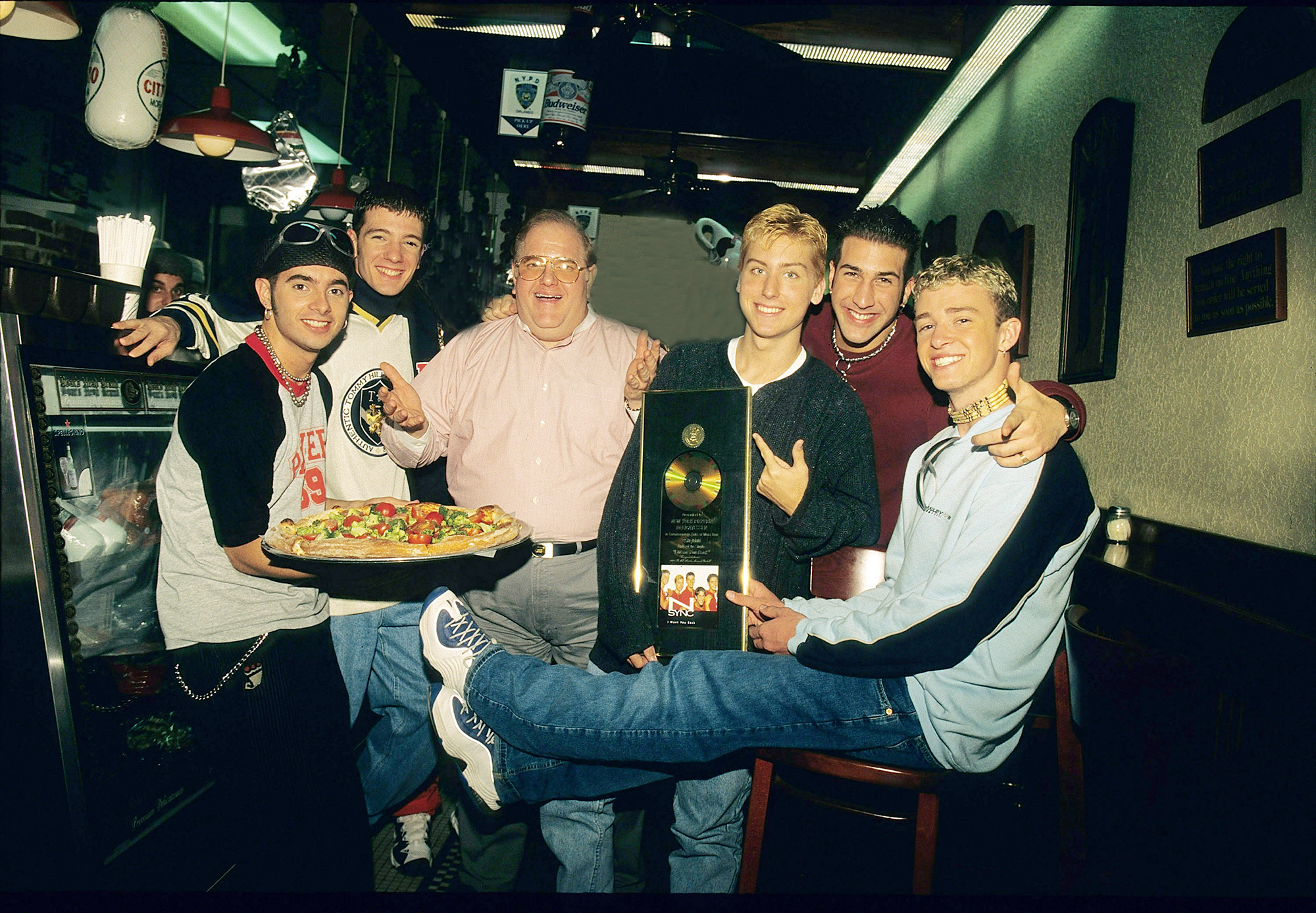
GMA: What should viewers take away from this doc?
Bass: One is the nostalgia. If you are a kid of the 90s you're going to love this movie just because the music is incredible. You go down memory lane and you find out something that you thought you knew the story of but had no clue what was going down behind the scenes. I think a doc lover is going to love it no matter what because our story was just a sliver of the Lou Pearlman story. What gets really intriguing is the birth of Lou Pearlman--his childhood friends in Queens, all the way to the Ponzi scheme victims in Orlando. There were so many layers.
Kunkel: We're in a world right now where fact and fiction is really starting to blend. This story really fits into that because that's what Lou was. It was really hard to figure out what Lou was saying--whether it was true or whether it was a lie. Hopefully that will make people examine that in their own lives too.
